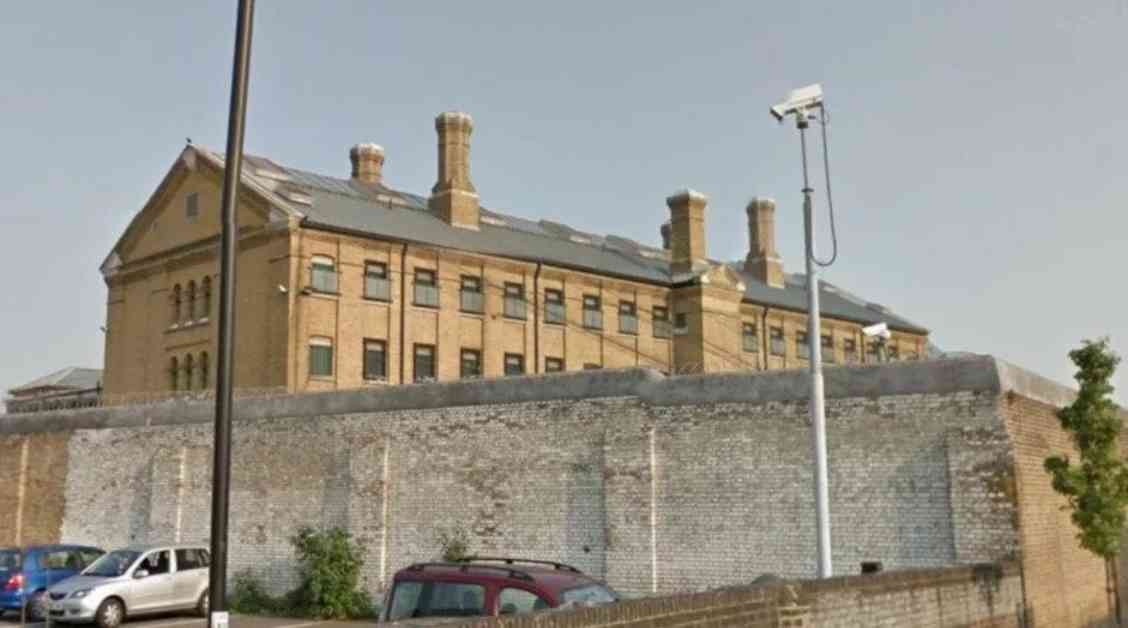Some survivors of crime were left in shock and distress after not being informed that their perpetrators were to be released early as part of the government’s scheme to ease overcrowding in prisons. The charity Restorative Justice For All (RJ4All) raised concerns about the lack of communication and preparation for this mass release of offenders.
Early this morning, the government released 1,700 offenders from prisons across the country. Among the prisons expected to release several dozen offenders were Brixton, Humber, Berwyn, and Risley. The decision to release these individuals early was made in an effort to address the overcrowding issue within the prison system.
Professor Theo Gavrielides, the founder and director of RJ4All, expressed his concerns about the rushed nature of the government’s plan. He highlighted the fact that some victims were not informed of their offenders’ release, including victims of domestic violence who now face the prospect of their abusers returning home. This lack of communication has left many survivors feeling vulnerable and unsupported.
While the government has stated that perpetrators of serious violent offences, domestic abuse, and sexual offences are supposed to be exempt from the early release scheme, campaigners argue that the exemptions list is not comprehensive enough. This raises questions about the safety and well-being of victims who may be at risk of encountering their offenders once again.
Mr. Gavrielides emphasized the importance of providing support for both victims and released offenders to prevent further harm and reduce the likelihood of reoffending. He stressed the need for a coordinated government response to ensure that adequate resources and services are in place to address the challenges posed by the early release of offenders.
Impact on Victims and Communities
The lack of communication between authorities and victims regarding the early release of offenders has had a profound impact on survivors of crime. Many have expressed feelings of fear, anxiety, and betrayal upon learning that their perpetrators were being set free without their knowledge. This lack of transparency has eroded trust in the criminal justice system and left victims feeling abandoned and vulnerable.
In addition to the emotional toll on victims, the release of offenders without proper support and supervision poses a significant risk to public safety. Without adequate housing, employment, and mental health services in place, released offenders may struggle to reintegrate into society and may be more likely to reoffend. This can have serious consequences for communities, putting them at risk of experiencing further harm and victimization.
The Importance of Restorative Justice
Restorative justice offers a holistic approach to addressing the needs of both victims and offenders in the aftermath of a crime. By facilitating communication, accountability, and healing between the parties involved, restorative justice aims to repair harm, promote reconciliation, and prevent future violence. RJ4All has been a leading advocate for restorative justice practices and has provided support to hundreds of individuals through its various programs and services.
Incorporating restorative justice principles into the criminal justice system can help to address the root causes of crime, promote rehabilitation, and reduce recidivism. By prioritizing the needs of victims and empowering them to participate in the justice process, restorative justice can foster healing and closure for those impacted by crime. It also holds offenders accountable for their actions and encourages them to take responsibility for their behavior.
Challenges and Solutions
The early release of offenders presents a number of challenges for victims, communities, and service providers. Without proper communication, preparation, and support in place, the reintegration of released offenders into society may be fraught with difficulties. In order to address these challenges effectively, a coordinated response involving government agencies, community organizations, and advocacy groups is essential.
One of the key challenges facing victims and survivors is the lack of information and support available to them following the release of their offenders. By improving communication and outreach efforts, authorities can ensure that victims are informed of important developments and have access to the resources they need to feel safe and supported. This may include providing counseling, legal assistance, and emergency housing to those in need.
Another challenge is the lack of adequate housing, employment, and mental health services for released offenders. Without stable housing and a means of support, individuals may struggle to meet their basic needs and may resort to criminal behavior as a result. By investing in programs that address these social determinants of crime, policymakers can help to prevent reoffending and promote successful reintegration into society.
Moving Forward
As the government continues to grapple with the challenges posed by the early release of offenders, it is essential that the needs of victims and communities are prioritized. By investing in restorative justice programs, expanding access to mental health services, and strengthening support networks for survivors of crime, policymakers can help to build a more just and compassionate society. RJ4All stands ready to support these efforts and work towards a future where victims are heard, offenders are held accountable, and communities are safe and secure.

